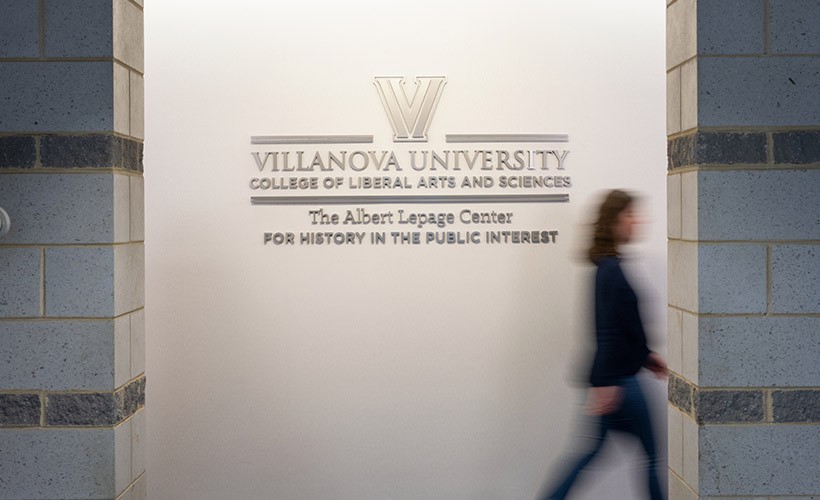History Impacts the Future: The Albert Lepage Center
Courtesy of Villanova University
The Lepage Center hosted the climate change webinar recently
December 7, 2022
History is critical for education, as it analyzes the causes and effects of events that define the contemporary world. The Albert Lepage Center at Villanova is dedicated to teaching impactful history lessons to help students understand historical events and how something similar could repeat itself or be prevented.
Kevin Fox, the center administrator, helped explain the importance of having resources such as the Lepage Center on campus for students.
“The Albert Lepage Center for History in the Public Interest strives to advance the cause of a historically-informed public,” Fox said. “The Lepage Center is committed to training a new generation of historians who understand the connection between history, policymaking, journalism and much more.
Fox is in his first year as the center administrator but attended the MA program at Villanova for History in 2017. His youth and excitement attests to the many directions that the center is heading– connecting generations through historical dialogue.
The center’s primary mission is “to reflect upon the present through the lens of the past.”
During the year, the Lepage Center holds on-campus and virtual events, bringing scholars from across the globe. All students, regardless of their academic program, are welcome to attend. Fox explained that to help guide historical discussion, there are themes for academic years– this year being “Climate Change in Historical Perspective.”
The theme is meant to explore climate change denial, activism, national security issues and the future of Philadelphia and cities like it, all while inspiring students to act.
The center’s events can be educational workshops, open discussions and panels. Jonathan Zimmerman, a University of Pennsylvania history of education professor, led discussions on “Culture Wars in Public Schools.”
Erin Vintinner Betley of the Center for Biodiversity and Conservation at the American Museum of Natural History also joined the center to discuss eminent domain regarding Lower Merion schools and explained the rich history connected to women’s agriculture.
Many more educators have joined, but ultimately, the center empowers diversity in academics and history.
There are many low-stakes opportunities for students to hear from educators in casual encounters, such as Lunch @ Lepage: a moment for students and faculty to think about the history behind current headlines– all with lunch provided.
As well as events for the students, the center provides internships to students too.
“We provide six internships per year to graduate and undergraduate students – allowing them to work at local and national historical sites and organizations while we pay them a stipend,” Fox said. “Partners this past summer included Yellowstone National Park and the Women League of Voters of Pennsylvania.”
Graduate student Tripp Wright ‘23 MA and undergraduate student Alise Adornato ‘23 CLAS joined the center as History Fellows.
Adornato explained her motivation for being involved in the center, as she is a History and French double major, on the pre-medicine track.
“Due to my interests in multiple fields, being involved at the Lepage Center has offered me an opportunity to connect modern events and issues in my various fields of study and embrace them in a historical context,” Adornato said. “It has been a fun way to meet other students and faculty, while also broadening my perspective on the behind the scenes of event planning and research here at Villanova.”
The Lepage Center encourages all students to attend their events and hopes to see students of various academic backgrounds. Center administrators clearly state that their motivation is to inspire students to acknowledge the interconnectedness of their academics. History is embedded within all career paths, and the Lepage Center has resources to learn more about it.
Educators cannot replace history, so it is critical that it be used as an example to make a more equitable and organized world moving forward. This societal change may just start from The Lepage Center’s influential work.


